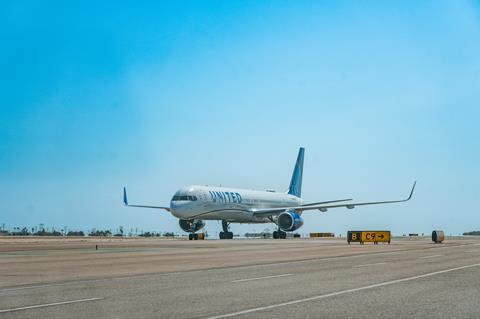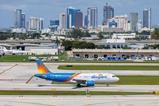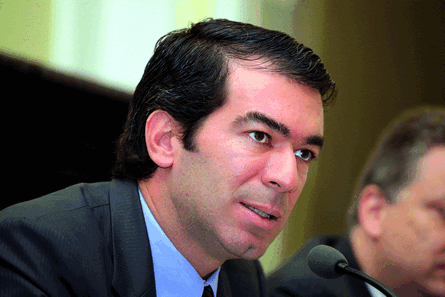United Airlines’ profitable third quarter was boosted by an “inflection point” in the US airline industry, which saw a widespread shedding of domestic passenger capacity as some carriers cut routes.
Scott Kirby, United’s chief executive, observed earlier this year that a correction was due as the domestic market was oversaturated with airline seats on routes to popular vacation destinations.
United, he argued, was poised to benefit as competitors – namely, low-cost carriers such as Frontier Airlines and Spirit Airlines, as well as Southwest Airlines – trimmed unprofitable routes from their networks.
“As predicted, unproductive capacity left the market in mid-August, and we saw a clear inflection point in our revenue trends that propelled United to exceed third-quarter expectations,” Kirby said on 15 October. ”A prosperous summer 2024 is just the beginning as our improved customer experience combined with United Next positions the airline at the top of the industry for the foreseeable future.”

Chicago-headquartered United reports a profit of $965 million in the three months ending 30 September, a decrease of about 15% from a $1.14 billion profit in the third quarter of 2023.
United’s third-quarter revenue increased slightly, year-on-year, to $14.8 billion from $14.5 billion.
The airline says it operated its largest-ever domestic and Canadian third-quarter schedules, and also the largest quarterly schedule to Europe in United’s history.
Year-on-year revenues increased from United's corporate (13%), premium (5%) and basic economy (20%) passenger segments.
United's capacity increased year-on-year by more than 4%.
Last week, Atlanta-based Delta Air Lines reported a $1.27 billion third-quarter profit, a 15% increase from $1.11 billion during the prior-year period, as revenue climbed to $15.7 billion.
BUYBACK PLAN
United's board of directors recently approved a plan to repurchase up to $1.5 billion of United stock originally issued to the US Treasury under the CARES Act and Payroll Support programme, a Covid-19-era economic stimulus bill passed by Congress in March 2020.
"This is the first share repurchase program since the suspension of the previous program in 2020 due to the Covid-19 pandemic," United says.
The programme has no set expiration date and will terminate "when the company has completed all purchases authorised" by its board.
"In the last four years, we've invested $22 billion in our product and nearly $10 billion in our people," says Michael Leskinen, United's chief financial officer. "Those investments have enabled higher profits and are now contributing to growing free cash flow. We're now in a position to add a share repurchase programme as we continue to invest in and de-leverage our business."
During the third quarter, United repurchased more than 2 million shared of United stock from the US Treasury, separately from the company's new share buyback plan.
In a 15 October letter to United employees, Kirby pledged that "investing in our people and our business will always be my top priority, even while we institute this share repurchase programme".
"We’ve had the best financial improvement of any carrier coming out the pandemic," he adds, "and that's a direct result of our innovative approach and the investments we’ve made in our people and our product."































